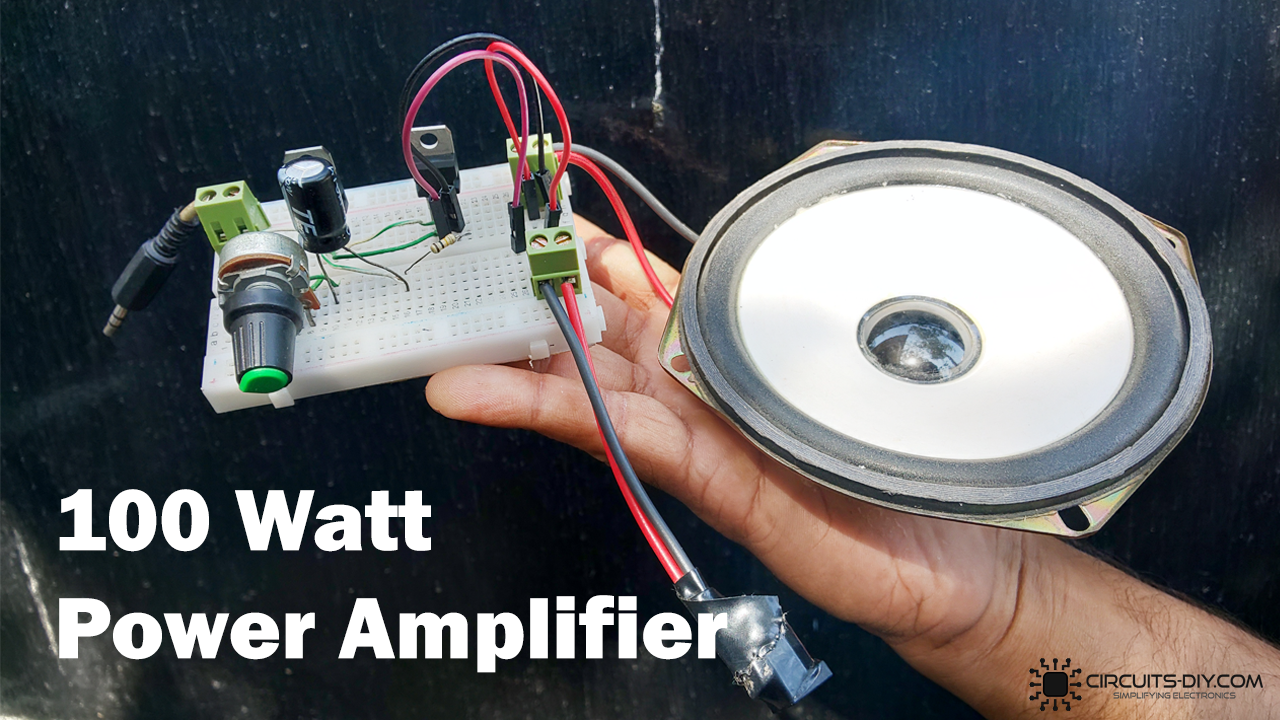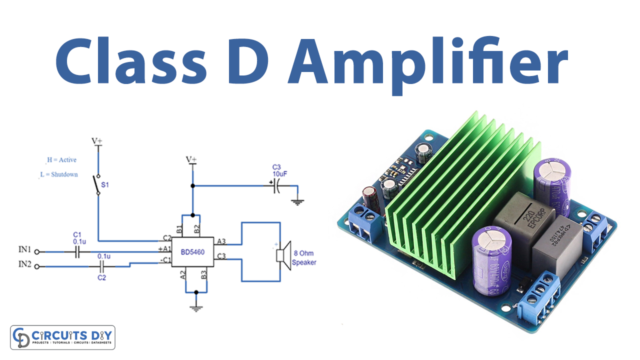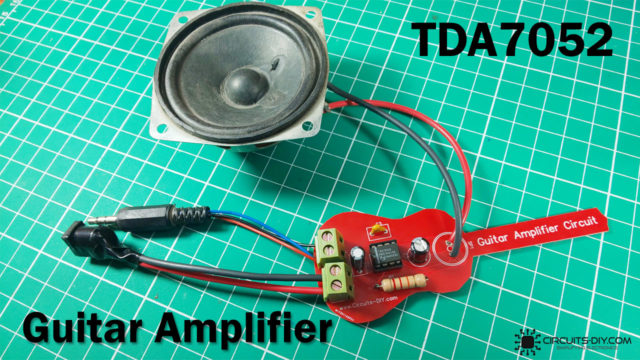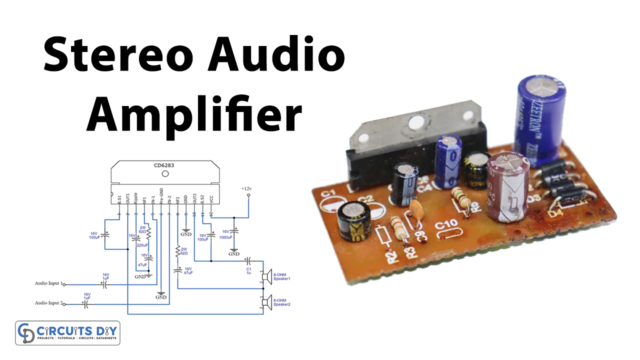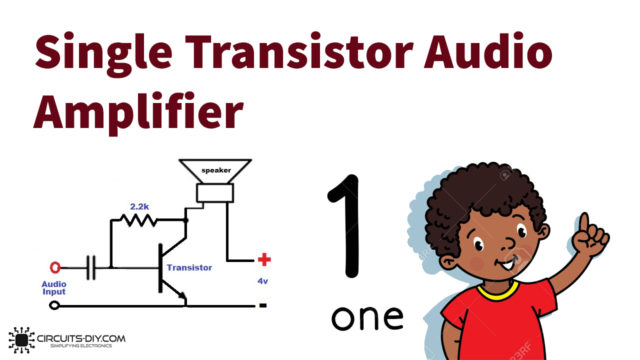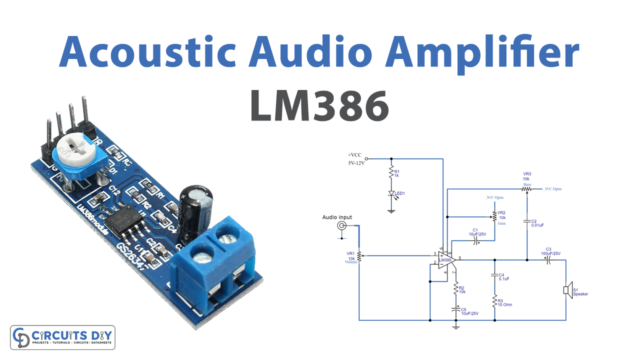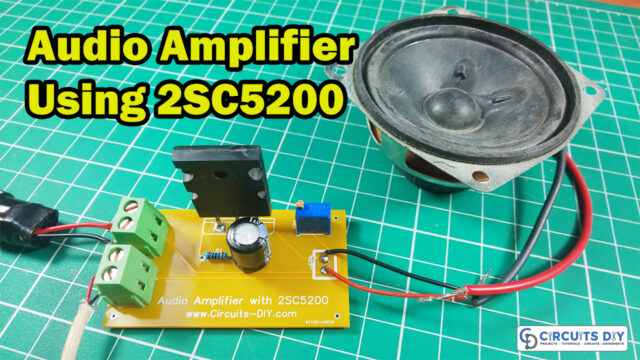An audio amplifier is a simple electronic circuit that can be used to take in a weak audio signal and then transduce it into a better, more powerful, and audible audio signal. Audio amplifiers are now seen in almost every consumer electronic product in some shape, way, or form. Some basic examples would be music players, camcorders, smartphones, laptops, and PCs. In today’s article, we are going to go over a step-by-step process on how to build a 100W Powerful Audio Amplifier using the TIP122/127 Darlington pair transistors.
TIP122 & TIP127 are Darlington pair NPN & PNP transistor pair. they function like normal NPN/PNP transistors, but since they have a Darlington pair inside they have a good collector current rating of about 5A and a gain of about 1000. They can withstand about 100V across their Collector-Emitter terminal hence they can be used to drive heavy loads.
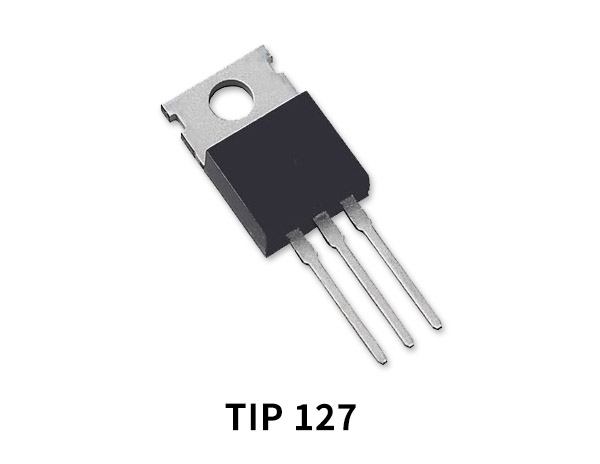
Hardware Components
The following components are required to make 100 Watt Audio Amplifier Circuit
| S.no | Component | Value | Qty |
|---|---|---|---|
| 1. | Darlington pair Transistors | TIP122, TIP127 | 2 |
| 2. | Audio Jack | 3.5mm/male, female | 1 |
| 3. | Smartphone | – | 1 |
| 4. | Terminal block connectors | – | 2 |
| 5 | Loudspeaker | 8 Ohm | 1 |
| 6. | Potentiometer | 10K | 1 |
| 7. | Electrolytic Capacitor | 470uF | 1 |
| 8 | Resistor | 150K | 1 |
| 9. | Jumper Wires | – | As per need |
| 10. | DC Battery with clip | – | 1 |
TIP122 Pinout

For a detailed description of pinout, dimension features, and specifications download the datasheet of TIP122
TIP127 Pinout
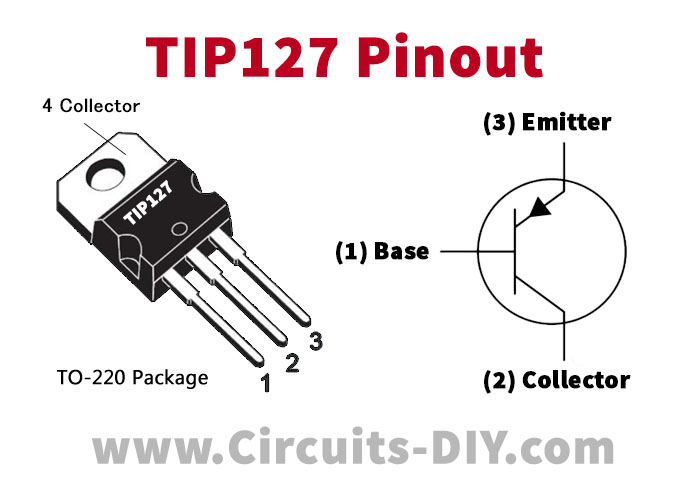
For a detailed description of pinout, dimension features, and specifications download the datasheet of TIP127
100 Watt Audio Amplifier Circuit
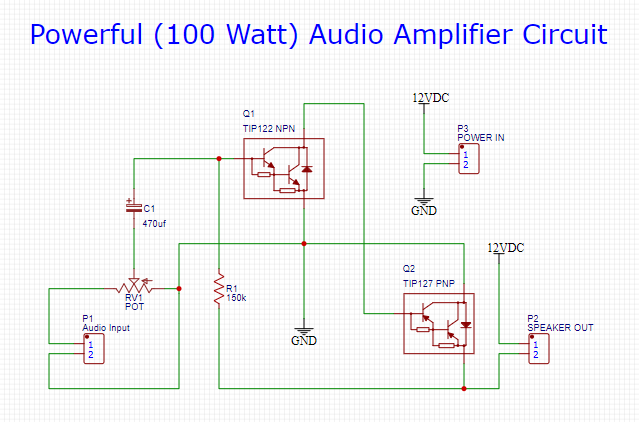
Working Explanation
The working of this circuit is as follows. The thing that makes this circuit unique is the robust & high-power TIP122/127 Darlington transistor pair. Audio input is taken from a general audio transducer such as a mic. This input acts as the DC control signal for the transistor Q1. Here, a capacitor (470uF) acts as a coupling capacitor, blocking the DC component of the signal, allowing only the AC component of the signal to pass through. Transistor Q1 amplifies the signal & sends it to the base of the transistor Q2.
The TIP127 further amplifies the input signal & directs it to an audio output device such as a loudspeaker. You can adjust the intensity of the output audio signal by simply tuning the 10K preset pot.
Applications
- Used in devices such as MP3 players, megaphones, etc.
- They have also found their way into militaristic applications such as acoustic weaponry.
- Also commonly used in live music performance, production, and recording.

